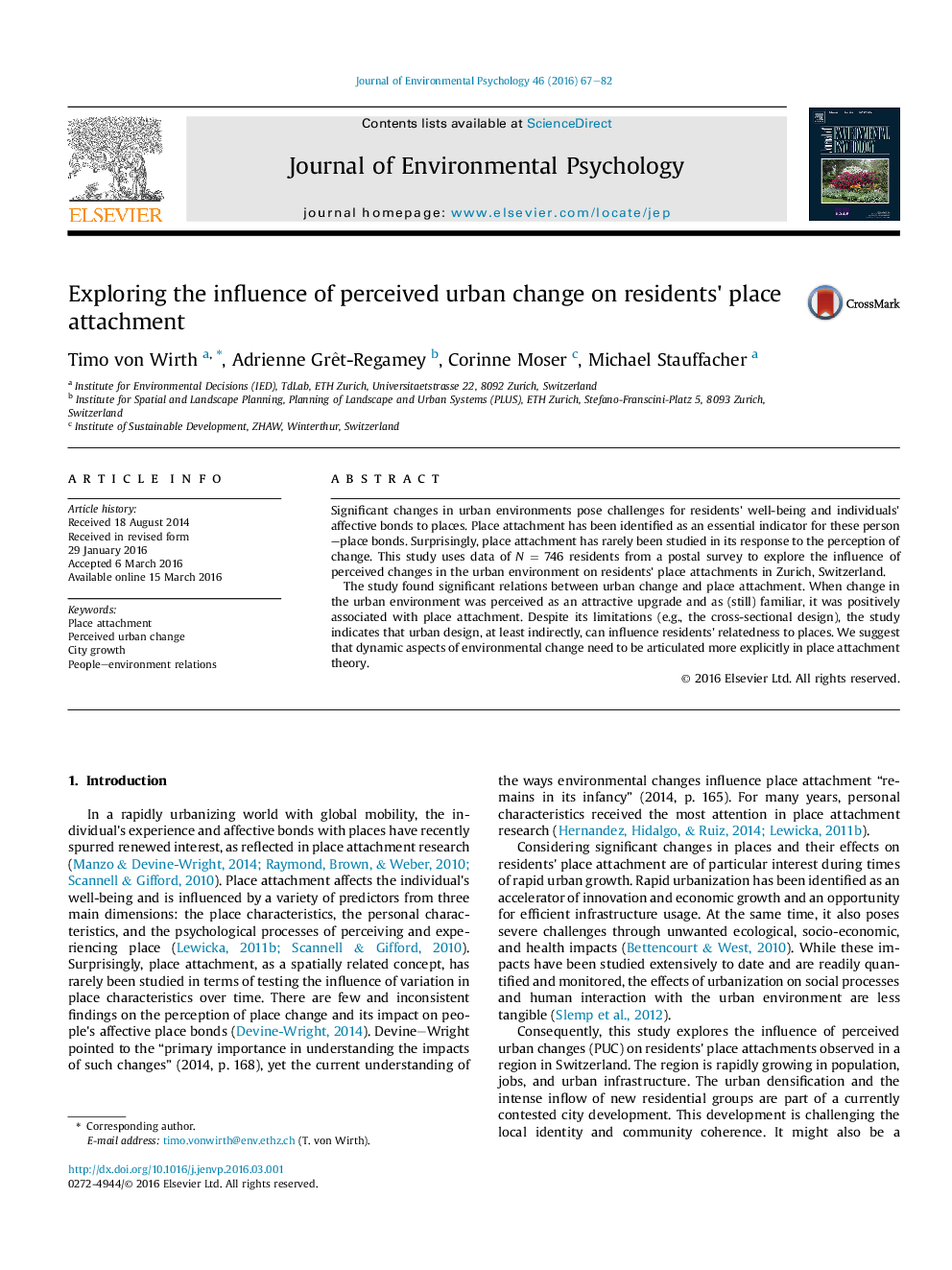| Article ID | Journal | Published Year | Pages | File Type |
|---|---|---|---|---|
| 885582 | Journal of Environmental Psychology | 2016 | 16 Pages |
•The study presents reliable measurement scales for residents' perception of urban change.•Perceiving changes in the urban environment as an attractive upgradewas found to be positively related to place attachment.•Urban design interventions, at least indirectly, can influence residents' place attachment.
Significant changes in urban environments pose challenges for residents' well-being and individuals' affective bonds to places. Place attachment has been identified as an essential indicator for these person–place bonds. Surprisingly, place attachment has rarely been studied in its response to the perception of change. This study uses data of N = 746 residents from a postal survey to explore the influence of perceived changes in the urban environment on residents' place attachments in Zurich, Switzerland.The study found significant relations between urban change and place attachment. When change in the urban environment was perceived as an attractive upgrade and as (still) familiar, it was positively associated with place attachment. Despite its limitations (e.g., the cross-sectional design), the study indicates that urban design, at least indirectly, can influence residents' relatedness to places. We suggest that dynamic aspects of environmental change need to be articulated more explicitly in place attachment theory.
